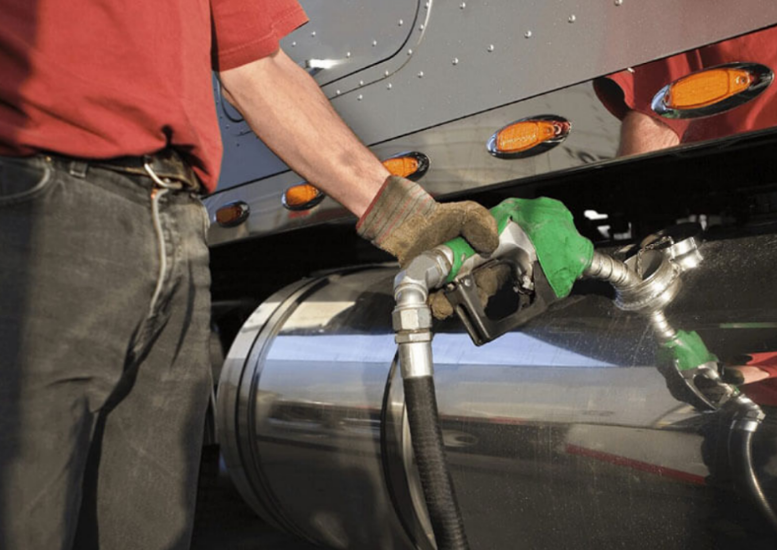
Optimizing fuel consumption in the logistics industry is incredibly important for sustainability and efficiency. According to a report by the International Energy Agency (IEA), the transportation sector is responsible for around 24% of global energy-related CO2 emissions which causes climate change. Similarly, another report from the International Transport Forum reveals that by improving fuel efficiency by just 10%, companies can save an average of USD 30,000 per vehicle every year. That’s a substantial cost reduction.
The logistics industry is heavily reliant on fuel to keep things moving. By embracing innovation and efficiency, companies can not only reduce the cost of operations but also build a greener logistics future.
Fuel conservation is crucial for logistics companies as it significantly impacts their expenses and profit margins. Optimizing fuel consumption:
●Provides a competitive edge
●Improves operational efficiency
●Allows for resource allocation
●Promotes growth initiatives
By prioritizing fuel conservation, companies reduce expenses, minimize their environmental impact, and establish industry leadership. This win-win situation leads to better profitability, greener operations, and long-term success.
Increasing profitability and margin A study by the American Transportation Research Institute found that fuel costs make up around 24% of trucking expenses.
Fuel savings can be invested in skilled drivers, technology and training, improving efficiency, and driving overall profitability.
Optimizing fuel usage can also help gain a competitive edge by attracting sustainable-minded customers.
Sustainability
The trending customer behaviour is to prioritize eco-friendly solutions and align with businesses promoting sustainable practices.
Fuel optimization can improve sustainability in more ways than one. It’s not just about the apparent fuel saving; fuel optimization is closely tied to factors like vehicle health and driver behavior.
Fuel Optimization comes with other benefits like driving practices that reduce emissions and avoid hazardous accidents/events, as well as well-maintained vehicles that don’t demand repeated maintenance/replacement that usually involves processes taxing to the environment.
Thus, practicing fuel conservation will prove significant for businesses, even in the context of long-term profitability and sustainability.
Technology
Technology occupies a central role in optimizing fuel consumption within logistics operations. Sophisticated fleet management systems, GPS tracking, and route optimization software empower logistics companies to minimize fuel wastage while augmenting operational efficiency.
By leveraging real-time data analytics, companies can gain invaluable insights, pinpoint areas for improvement, and refine their logistics processes. By harnessing the full potential of technology, companies can make data-driven decisions that maximize fuel efficiency while propelling overall operational performance to unprecedented heights.
●Optimization through Advanced Systems: Fleet management systems, GPS tracking, and route optimization software minimize fuel wastage. These technologies enable logistics companies to monitor and manage their fleet effectively, optimizing routes and reducing mileage. Real-time data and insights improve fuel efficiency.
●GPS Tracking and Route Optimization: GPS tracking systems provide real-time visibility, optimizing routes and reducing fuel consumption. Efficient routes minimize detours, avoid traffic, and reduce idling time. Drivers take direct and fuel-efficient paths.
●Real-time Data Analytics: Analyzing fuel consumption, driver behavior, and vehicle performance optimizes logistics processes. Data-driven insights identify inefficiencies, leading to significant fuel savings and operational improvements.
●Predictive Analytics for Fuel Efficiency: Predictive analytics uses historical data to optimize vehicle loads, plan efficient routes, and predict future fuel requirements. Timely maintenance addresses issues affecting fuel efficiency.
●Telematics and Driver Behavior: Telematics technology promotes fuel-efficient driving habits. Real-time feedback on fuel consumption, idling, acceleration, and braking helps develop training programs and incentives for responsible driving, improving fuel efficiency.
Preventative maintenance
Regular vehicle maintenance is crucial for fuel efficiency in logistics. Proactive practices like inspections, engine tuning, and tire maintenance optimize consumption and reduce costs.
Vehicles that are not properly maintained can experience decreased fuel efficiency. Worn-out components, clogged filters, and inefficient engine performance can all contribute to increased fuel consumption. Proactive measures such as regular inspections, engine tuning, and tire maintenance can significantly improve fuel efficiency.
Advanced telematics systems can provide real-time insights into vehicle performance, alerting operators to potential issues that could impact fuel efficiency. By analyzing data on engine performance, fuel consumption, and maintenance history, companies can proactively schedule maintenance activities to ensure vehicles remain in optimal condition.
Driver Behaviour
Proper driver behavior plays a crucial role in fuel efficiency, making it an essential aspect of saving fuel in the logistics industry. Adopting efficient driving practices, such as maintaining steady speeds, minimizing idling time, and avoiding aggressive acceleration and braking, can significantly reduce fuel consumption.
Telematics systems provide valuable insights into driving habits, including speed, idling time, and fuel consumption. Armed with this information, companies can identify areas for improvement, provide feedback to drivers, and track their progress in adopting fuel-efficient practices.
Endnote
Fuel conservation and sustainability have critical significance within the logistics industry. By optimizing fuel consumption, logistics companies can not only curtail operational costs but also actively contribute to a greener future.
Technology emerges as a vital component in achieving fuel efficiency—by offering real-time data analytics, facilitating preventative maintenance measures, and fostering responsible driver behaviour.
As the industry continues its evolutionary journey, embracing fuel-saving measures becomes an indispensable necessity for profitability, customer satisfaction, and environmental stewardship.
(Disclaimer: Pali Tripathi is CEO of Taabi.ai. Views are personal. Taabi offers AI/ML-driven SaaS Platforms to optimize fuel consumption, reduce expenses, and promote sustainability.)

